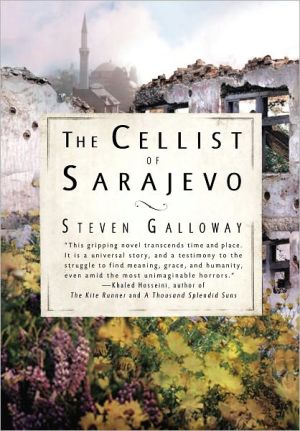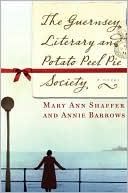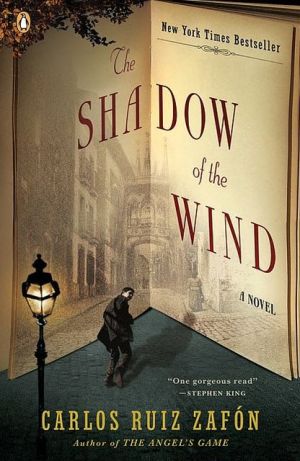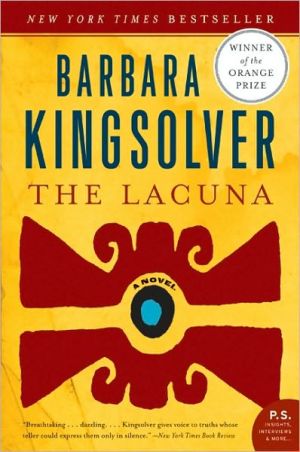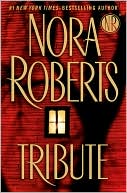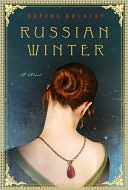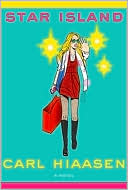The Cellist of Sarajevo
A spare and haunting, wise and beautiful novel about war and the endurance of the human spirit and the subtle ways individuals reclaim their humanity.\ In a city under siege, four people whose lives have been upended are ultimately reminded of what it is to be human. From his window, a musician sees twenty-two of his friends and neighbors waiting in a breadline. Then, in a flash, they are killed by a mortar attack. In an act of defiance, the man picks up his cello and decides to play at the...
Search in google:
A spare and haunting, wise and beautiful novel about the endurance of the human spirit and the subtle ways individuals reclaim their humanity in a city ravaged by war.In a city under siege, four people whose lives have been upended are ultimately reminded of what it is to be human. From his window, a musician sees twenty-two of his friends and neighbors waiting in a breadline. Then, in a flash, they are killed by a mortar attack. In an act of defiance, the man picks up his cello and decides to play at the site of the shelling for twenty-two days, honoring their memory. Elsewhere, a young man leaves home to collect drinking water for his family and, in the face of danger, must weigh the value of generosity against selfish survivalism. A third man, older, sets off in search of bread and distraction and instead runs into a long-ago friend who reminds him of the city he thought he had lost, and the man he once was. As both men are drawn into the orbit of cello music, a fourth character—a young woman, a sniper—holds the fate of the cellist in her hands. As she protects him with her life, her own army prepares to challenge the kind of person she has become.A novel of great intensity and power, and inspired by a true story, The Cellist of Sarajevo poignantly explores how war can change one's definition of humanity, the effect of music on our emotional endurance, and how a romance with the rituals of daily life can itself be a form of resistance.ZZ PackerI cannot imagine a lovelier, more beautifully wrought book about the depravity of war as The Cellist of Sarajevo. Each chapter is a brief glimpse at yet another aspect of the mind, the heart, the soul—altogether Galloway gives us fine, deep notes of human music which will remain long after the final page. (ZZ Packer, author of Drinking Coffee Elsewhere)
It screamed downward, splitting air and sky without effort. A target expanded in size, brought into focus by time and velocity. There was a moment before impact that was the last instant of things as they were. Then the visible world exploded.\ In 1945, an Italian musicologist found four bars of a sonata's bass line in the remnants of the firebombed Dresden Music Library. He believed these notes were the work of the seventeenth-century Venetian composer Tomaso Albinoni, and spent the next twelve years reconstructing a larger piece from the charred manuscript fragment. The resulting composition, known as Albinoni's Adagio, bears little resemblance to most of Albinoni's work and is considered fraudulent by most scholars. But even those who doubt its authenticity have difficulty denying the Adagio's beauty.\ Nearly half a century later, it's this contradiction that appeals to the cellist. That something could be almost erased from existence in the landscape of a ruined city, and then rebuilt until it is new and worthwhile, gives him hope. A hope that, now, is one of a limited number of things remaining for the besieged citizens of Sarajevo and that, for many, dwindles each day.\ And so today, like every other day in recent memory, the cellist sits beside the window of his second-floor apartment and plays until he feels his hope return. He rarely plays the Adagio. Most days he's able to feel the music rejuvenate him as simply as if he were filling a car with gasoline. But some days this isn't the case. If, after several hours, this hope doesn't return, he will pause to gather himself, and then he and his cello will coax Albinoni's Adagio out of the firebombed husk of Dresden and into the mortar-pocked, sniper-infested streets of Sarajevo. By the time the last few notes fade, his hope will be restored, but each time he's forced to resort to the Adagio it becomes harder, and he knows its effect is finite. There are only a certain number of Adagios left in him, and he will not recklessly spend this precious currency.\ It wasn't always like this. Not long ago the promise of a happy life seemed almost inviolable. Five years ago, at his sister's wedding, he'd posed for a family photograph, his father's arm slung behind his neck, fingers grasping his shoulder. It was a firm grip, and to some it would have been painful, but to the cellist it was the opposite. The fingers on his flesh told him that he was loved, that he had always been loved, and that the world was a place where above all else the things that were good would find a way to burrow into you. Though he knew all of this then, he would give up nearly anything to be able to go back in time and slow down that moment, if only so he could more clearly recall it now. He would very much like to feel his father's hand on his shoulder again.\ He can tell today won't be an Adagio day. It has been only a half hour since he sat down beside the window, but already he feels a little bit better. Outside, a line of people wait to buy bread. It's been over a week since the market's had any bread to buy, and he considers whether he might join them. Many of his friends and neighbors are in line. He decides against it, for now. There's still work to do.\ It screamed downward, splitting air and sky without effort. A target expanded in size, brought into focus by time and velocity. There was a moment before impact that was the last instant of things as they were. Then the visible world exploded.\ When the mortars destroyed the Sarajevo Opera Hall, the cellist felt as if he were inside the building, as if the bricks and glass that once bound the structure together had become projectiles that sliced and pounded into him, shredding him beyond recognition. He was the principal cellist of the Sarajevo Symphony Orchestra. That was what he knew how to be. He made the idea of music an actuality. When he stepped onstage in his tuxedo he was transformed into an instrument of deliverance. He gave to the people who came to listen what he loved most in the world. He was as solid as the vise of his father's hand.\ Now he doesn't care whether anyone hears him play or not. His tuxedo hangs in the closet, untouched. The guns perched on the hills surrounding Sarajevo have dismantled him just as they have the Opera Hall, just as they have his family home in the night while his father and mother slept, just as they will, eventually, everything.\ The geography of the siege is simple. Sarajevo is a long ribbon of flat land surrounded on all sides by hills. The men on the hills control all the high ground and one peninsula of level ground in the middle of the city, Grbavica. They fire bullets and mortars and tank shells and grenades into the rest of the city, which is being defended by one tank and small handheld weapons. The city is being destroyed.\ The cellist doesn't know what is about to happen. Initially the impact of the shell won't even register. For a long time he'll stand at his window and stare. Through the carnage and confusion he'll notice a woman's handbag, soaked in blood and sparkled with broken glass. He won't be able to tell whom it belongs to. Then he'll look down and see he has dropped his bow on the floor, and somehow it will seem to him that there's a great connection between these two objects. He won't understand what the connection is, but the feeling that it exists will compel him to undress, walk to the closet, and pull the dry cleaner's plastic from his tuxedo.\ He will stand at the window all night and all through the next day. Then, at four o'clock in the afternoon, twenty-four hours after the mortar fell on his friends and neighbors while they waited to buy bread, he will bend down and pick up his bow. He will carry his cello and stool down the narrow flight of stairs to the empty street. The war will go on around him as he sits in the small crater left at the mortar's point of impact. He'll play Albinoni's Adagio. He'll do this every day for twenty-two days, a day for each person killed. Or at least he'll try. He won't be sure he will survive. He won't be sure he has enough Adagios left.\ The cellist doesn't know any of this now, as he sits at his window in the sun and plays. He isn't yet aware. But it's already on its way. It screams downward, splitting air and sky without effort. A target expands in size, brought into focus by time and velocity. There is a moment before impact that is the last instant of things as they are. Then the visible world explodes.
\ From Barnes & NobleBarnes & Noble Discover Great New Writers\ Standing at his window on May 27, 1992, the cellist has no idea what is about to happen. The mortar that falls in front of his apartment building kills 22 of his friends and neighbors as they wait in line for bread, and in a moment, his world is horribly diminished. In mute defiance of the danger of doing so, he carries his instrument to the very place where the mortar exploded and plays. His intention is to play for 22 days -- one day for each person killed -- if he survives that long.\ \ In Galloway's spare and haunting first novel, the cellist is just one of four distinct voices that serve as witnesses of the bloody siege of Sarajevo: a 28-year-old woman no longer identified as a daughter, sister, student, or lover but solely by her greatest and most deadly talent -- finding a target and hitting it; a young man preparing to leave the sanctity of his home to retrieve water for his family, a seemingly ordinary journey that forces him to weigh the cost of humanity against that of his own survival; another man en route to a bakery who happens upon an old friend and begins to reminisce.\ \ Each of these voices is drawn into the orbit of the cellist's musical protest, reclaiming their presence and a small measure of their once beautiful city. (Summer 2008 Selection)\ \ \ \ \ ZZ PackerI cannot imagine a lovelier, more beautifully wrought book about the depravity of war as The Cellist of Sarajevo. Each chapter is a brief glimpse at yet another aspect of the mind, the heart, the soul—altogether Galloway gives us fine, deep notes of human music which will remain long after the final page. (ZZ Packer, author of Drinking Coffee Elsewhere)\ \ \ Yann MartelA grand and powerful novel about how people retain or reclaim their humanity when they are under extreme duress. (Yann Martel, author of Life of Pi)\ \ \ \ \ Kevin BakerSteven Galloway's The Cellist of Sarajevo is a wonderful story, a tribute to the human spirit in the face of insanity. (Kevin Baker, author of Dreamland and Paradise Alley)\ \ \ \ \ J. M. CoetzeeA gripping story of Sarajevo under siege. (J. M. Coetzee, author of Disgrace and Diary of a Bad Year)\ \ \ \ \ Publishers WeeklyCanadian Galloway (Ascension) delivers a tense and haunting novel following four people trying to survive war-torn Sarajevo. After a mortar attack kills 22 people waiting in line to buy bread, an unnamed cellist vows to play at the point of impact for 22 days. Meanwhile, Arrow, a young woman sniper, picks off soldiers; Kenan makes a dangerous trek to get water for his family; and Dragan, who sent his wife and son out of the city at the start of the war, works at a bakery and trades bread in exchange for shelter. Arrow's assigned to protect the cellist, but when she's eventually ordered to commit a different kind of killing, she must decide who she is and why she kills. Dragan believes he can protect himself through isolation, but that changes when he runs into a friend of his wife's attempting to cross a street targeted by snipers. Kenan is repeatedly challenged by his fear and a cantankerous neighbor. All the while, the cellist continues to play. With wonderfully drawn characters and a stripped-down narrative, Galloway brings to life a distant conflict. (May)\ Copyright 2007 Reed Business Information\ \ \ \ \ Library JournalA bread line in besieged Sarajevo. A mortar lobbed by Serb soldiers on the hill. Death for 22 people. A cellist sees it all and determines to honor the dead-and perhaps assuage his own pain-by playing Albinoni's Adagio on the spot for 22 days. And so Galloway opens his first novel, inspired by true events, weaving together four lives to tell the awful story of Sarajevo's devastation. Aside from the cellist, there's Kenan, who risks his life every few days to carry plastic canisters to the brewery and retrieve water for his family. Dragan, who got his family out before the bombs started falling, works at the bakery for, literally, his daily bread. Both must cower on street corners and watch those who risk crossing get shot or killed. Arrow, who uses an alias, is a sniper desperate to defend her city and just as desperate not to compromise her humanity by hating the men who rain death down on the city. In the end, each takes a stand, small or large, to assure that the "Sarajevo that [they want] to live is alive again." Galloway writes simply and affectingly, occasionally resorting to cliché and just as often hitting a sweet, clear note that makes the siege of Sarajevo very real. For most collections. [See Prepub Alert, LJ1/08.]\ —Barbara Hoffert\ \ \ \ \ \ Kirkus ReviewsFour people struggle to stay alive in war-torn Sarajevo, remembering the simple pleasures of their old routines as they settle into horrifying, desperate new ones. On a day during the brutal siege of Sarajevo-an occupation that ultimately lasted years and claimed tens of thousands of lives-a mortar attack kills 22 people waiting for bread as a once famous cellist watches from his window. In tribute, he decides to play his cello in the street for 22 days, which will likely get him killed, given the hordes of snipers waiting in the hills above the city. But Arrow, an angry young female sniper, is cryptically assigned to protect him. As she stalks his potential killers, she begins to confront her own rationale for murder. Meanwhile, two ordinary citizens try to survive another day in the hell that Sarajevo has become. Kenan, a young father, traverses the ravaged city in search of water for his family and, as a favor, for a neighbor. The only safe haven for clean drinking water is a brewery across town, and the trek is both difficult and dangerous. On the journey, Kenan passes the tragic remains of his old life, including the office building, now burnt down, where he used to work and the park, now unsafe, where he used to spend time with a friend. Meanwhile, Dragan, a middle-aged baker, runs into an old acquaintance as he goes searching for bread. The two literally dodge bullets as they make their way through the streets. As violence rages in a city whose vibrance now lives only in the memories of its dying residents, the cellist continues his beautiful act of defiance, playing on through the bullets. Indelible imagery and heartbreaking characters give authority to this chilling story andmake human a crisis typically overlooked in literature. Agent: Henry Dunow/Dunow, Carlson & Lerner\ \ \ \ \ Library JournalCanadian author Galloway's third novel, inspired by actual events and first published in 2008, transports listeners into Sarajevo's sniper alleys of the 1990s. After Bosnia and Herzegovina declared their independence from Yugoslavia, Serb forces encircled Sarajevo, besieging the city. In 1992, 22 citizens queuing to buy bread were killed in a mortar attack. A cellist who witnessed that attack from his apartment window defied the snipers and carried his instrument out into the crater in the street, playing Albinoni's Adagio in G minor for 22 days. Galloway's sparse, heartbreakingly beautiful fictionalization of this event is told from the points of view of three Sarajevans struggling to retain their sanity and humanity in the face of the utter madness surrounding them. These perspectives are all brilliantly conveyed through Welsh actor/narrator Gareth Armstrong's (The Defector) skilled performance. Sold in over 30 countries, this international best seller is an essential addition to all contemporary fiction collections. [The Riverhead hc was described as "making the siege of Sarajevo very real" and was recommended "for most collections," LJ 4/15/08.—Ed.]—Beth Farrell, Portage Cty. Dist. Lib., Garrettsville, OH\ \
